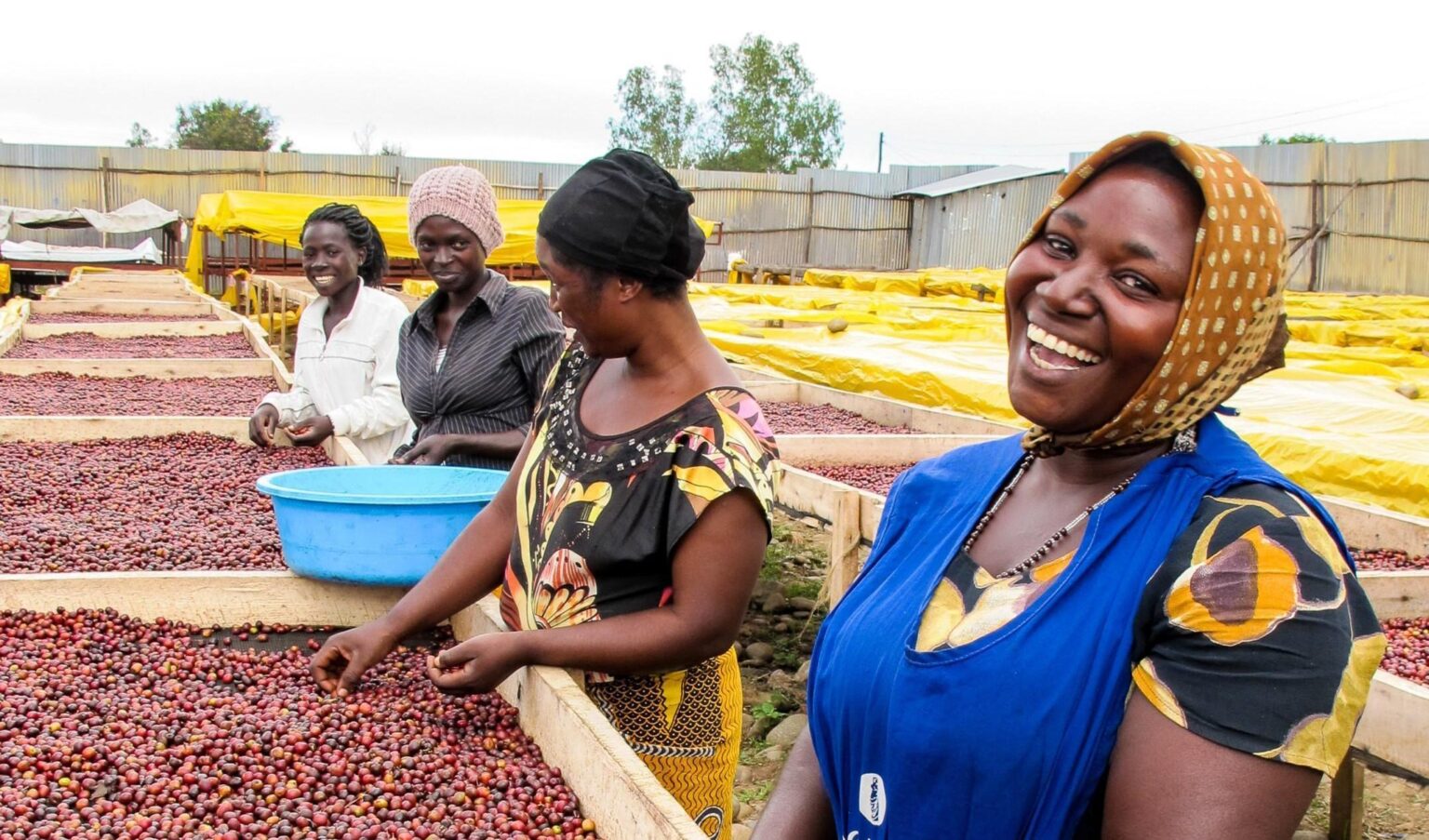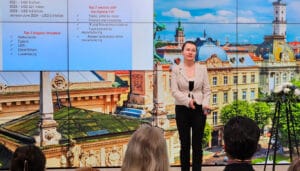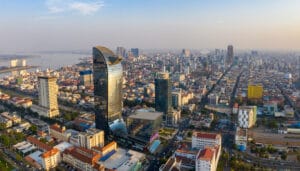Roastery building a direct link between coffee producers and consumers

Kaffa Roastery is building a supply chain from coffee farmers to consumers that will be as transparent and direct as possible. Finnpartnership’s support has played a vital role in the development of the new concept.
People walking on Pursimiehenkatu in Helsinki can smell the freshly roasted coffee as they pass by Kaffa Roastery and the accompanying coffee bar near the docks.
The company, founded in 2007, is one of the best-known micro roasteries and advocates of coffee culture in Finland. The roastery has also worked hard to promote ethical and environmental responsibility in the coffee business.
Svante Hampf, founder and CEO of Kaffa Roastery, says that the company has focused on enhancing transparency in the supply chain and cutting off unnecessary middlemen between coffee farmers and consumers.
“The existing certificates do not provide the level of transparency that we require, which was the reason why we decided to take things a step further and build our own system,” says Hampf.
Support from Finnpartnership accelerated the development
Kaffa Roastery received Finnpartnership’s Business Partnership Support a couple of years ago for arranging trips to East Africa to identify new partners. The support was spent on travel expenses and travel-related salaries.
The company representatives met numerous smallholder farmers in Ethiopia and Kenya, both well-known coffee producers, as well as in up-and-coming producers Rwanda and Uganda.
“The longest leg of our journey took place in Ethiopia, where we visited a number of areas and partners, whereas we had a more predefined itinerary in the other countries,” says Hampf.
Hampf says that support from Finnpartnership was essential for making such a wide range of new contacts.
“We are a small operator and we would never have had the resources to set up a tour like this. Finnpartnership’s support enabled us to develop new ideas more quickly.”
Trips to identify new partners were successful
Kaffa made new contacts with several coffee farmers and now buys coffee from them.
“It’s easier to work with someone that you know. In Uganda, for example, we have managed to keep up with our partners even if the local farmers haven’t been able to supply us with coffee of the agreed quality at the agreed price because of the drought.”
Kaffa Roastery will source raw coffee directly from farmers, at least as much as this is possible, so that it can guarantee the coffee’s ethical and sustainable origin. The company tries to visit every farmer and co-operative before making a decision to purchase from them.
Most of Kaffa Roastery’s partners are smallholder coffee farmers. The company also focuses on environmental issues and prefers to source coffee from farmers who use less fertilizer, consider the surrounding nature in their production and use as little water as possible.
A more direct link between farmers and consumers
Svante Hampf says that Kaffa Roastery aims to continue to build a system between coffee farmers and consumers that is as transparent as possible. The company has a plan in place to use an independent party to ensure that the farmers operate in a responsible manner.
“We’ve made a good start but a lot needs to be done yet.”
Kaffa Roastery’s idea is to develop a subscription service for coffee that would allow consumers to buy the coffee of their choice more directly from a farmer. Consumers would know where their money is going.
“We want to maximise the proportion of the price that goes to the farmers.”
Hampf points out that middlemen will be needed in the coffee business also in the future for washing, transporting, roasting and marketing efforts.
Kaffa publishes the prices it pays to its farmers for various coffee bean types on its website. Hampf says that Finnish customers ask questions about ethical and environmental issues related to coffee.
“Ten years ago, people would talk about taste, quality and price. They still do, but more attention is paid to ethical issues and coffee’s narrative. In fact, most questions now concern these issues.”
Image: Kaffa Roastery
Share on social media


